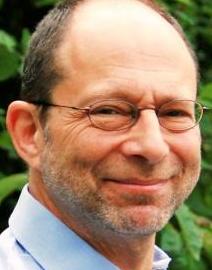Faces of the UK Open Government Network – Miles Litvinoff, Publish What You Pay UK
Open government can be an abstract idea. We want to give people a better idea of what it is, and who is in the UK Open Government Civil Society Network. We’ve asked some existing members of the network to give us their thoughts on what open government means to them, why it’s important, where they have seen open government make a difference to the lives of citizens, and the reforms they would ask of government.
We’ll be publishing a series of profiles of members of the network every few weeks, so keep a lookout! Our eighth blog is Miles Litvinoff, Publish What You Pay UK
Miles Litvinoff, Publish What You Pay UK
Open government has a key international role to play in ensuring that finite natural resources – oil, gas and minerals – are exploited for the public good rather than to enrich business and political elites. In most countries, these resources belong collectively to all citizens. The well-documented problem of the resource curse reflects the extent to which the global extractives sector has experienced corruption and mismanagement, failed to deliver lasting benefits to citizens, despite the very large sums of money involved, and sometimes led to violent conflict.
Calls for greater transparency and accountability on the part of the world’s oil, gas and mining companies and their government business partners – especially in accounting for payments made and revenues received for natural resources – have gained strength from the wider movement towards open government.
Publish What You Pay UK engaged actively in civil society discussions with the UK government that resulted in the UK’s current Open Government Partnership National Action Plan. This helped reinforce the government’s commitments to implement quickly and comprehensively new EU Directives requiring extractive industry country- and project-level payment reporting and to join the Extractive Industries Transparency Initiative. The UK OGP NAP process also helped secure a government commitment to apply principles from the Open Data Charter to extractives data published by companies and the government in the UK. These commitments have helped PWYP colleagues in other countries work for similar measures.
While many of us benefit in our daily lives from oil, gas and minerals, the social and environmental costs of natural resource extraction fall disproportionately on local communities, not to mention the climate change implications for us all and especially the most vulnerable populations. Further-reaching open government reforms would require extractive companies to report publicly and comprehensively on their impacts on livelihoods, human rights and the environment, both locally and globally, for example via obligations developed through government-led business and human rights action plans.
Miles Litvinoff is Coordinator of Publish What You Pay UK.
